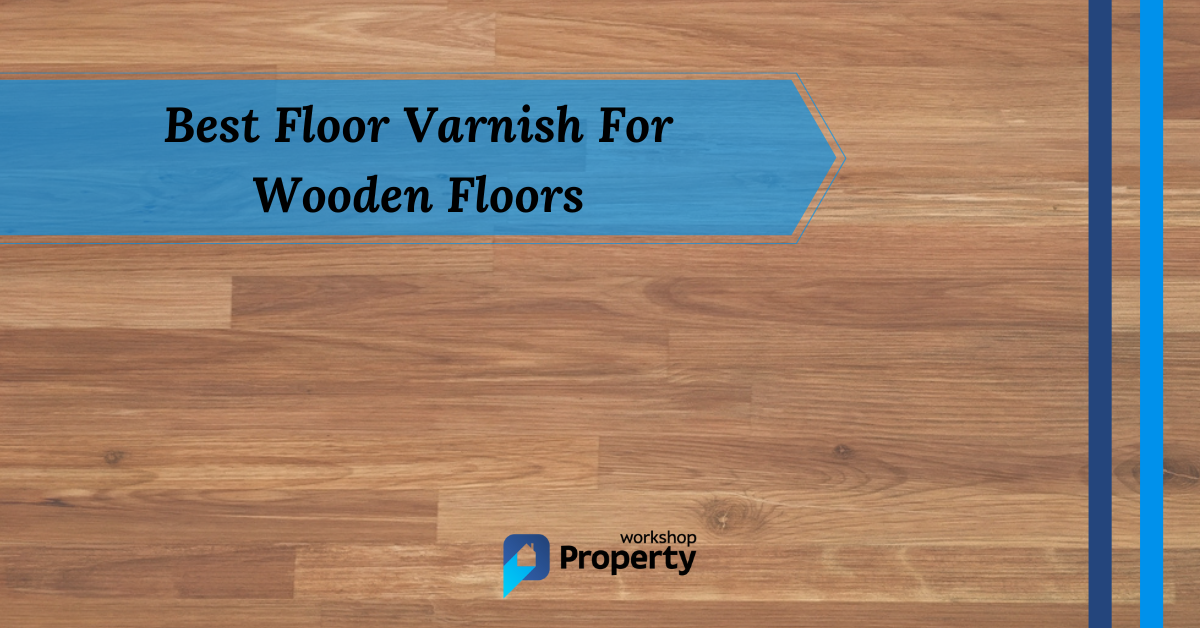Property Workshop is proudly reader-supported. When you buy through links on our site, we may earn a small Amazon affiliate commission but this does not affect the price you pay. Learn more here.
After extensive research and testing, we strongly believe Ronseal’s Diamond Hard Floor is the best floor varnish in the UK. This product brings out the beauty of wooden floors while protecting them from scrapes, spills, chips and scuffs.
Floor Varnish Reviews — The UK’s Top 3 in 2024
Below are the top three wood floor varnishes for 2024, starting with our overall top pick from Ronseal:
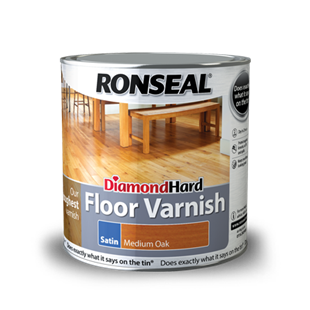
1. Ronseal Diamond Hard Floor
- Non-yellowing
- Ready for a second coat in two hours
- Covers up to 18 square metres
- Low odour
- Available in eight different colours
- Suitable for unvarnished and previously varnished floors
As this brand’s famous catchphrase states, this product does exactly what it says on the tin.
During testing, this varnish was extremely durable, provided extensive coverage and was easy to apply. Furthermore, I had no issues when it came to cleaning the brush.
Another essential quality of this varnish is its quick-drying formula, meaning I could apply a second coat the same day. Be aware that bubbles form when you first use this product, but these quickly disappear and leave the floor with a lovely finish.
Considering the ease of application, rapid drying time and beautiful, hard-wearing results, I believe this is the best floor varnish for wooden floors.
| Pros | Cons |
|---|---|
| Quick-drying | Slightly thin and runny |
| Extensive coverage | |
| Easy to clean off brushes | |
| Simple to apply |
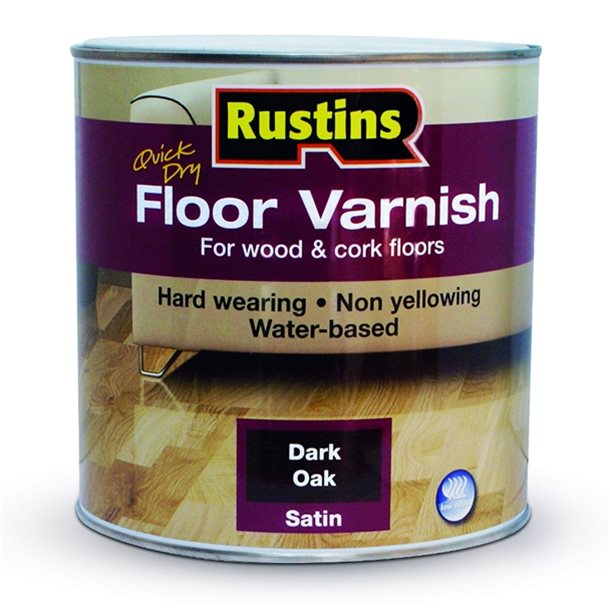
2. Rustins Quick Dry
- Water-based and quick-drying
- Low odour, clear and non-yellowing
- Resistant to water, alcohol, white spirit and other solvents
- Available in gloss and satin finishes
- Works on wood, MDF, concrete quarry tiles and unsealed terracotta
- Size options: 1 litre, 2.5 litre and 5 litre
This Rustins floor varnish benefits from having a lower odour than the other two products. I also like its non-toxic formula.
However, the most significant benefit of this product is its fast drying time, which can be as little as 20 minutes in a well-ventilated room.
The only downside is that this varnish can be slightly slippery, especially on non-porous floors, making it less suitable for stairs when compared with Ronseal’s offering.
| Pros | Cons |
|---|---|
| Looks great | Slightly slippery |
| Quick-drying | |
| Hard-wearing finish | |
| Easy to clean off brushes |
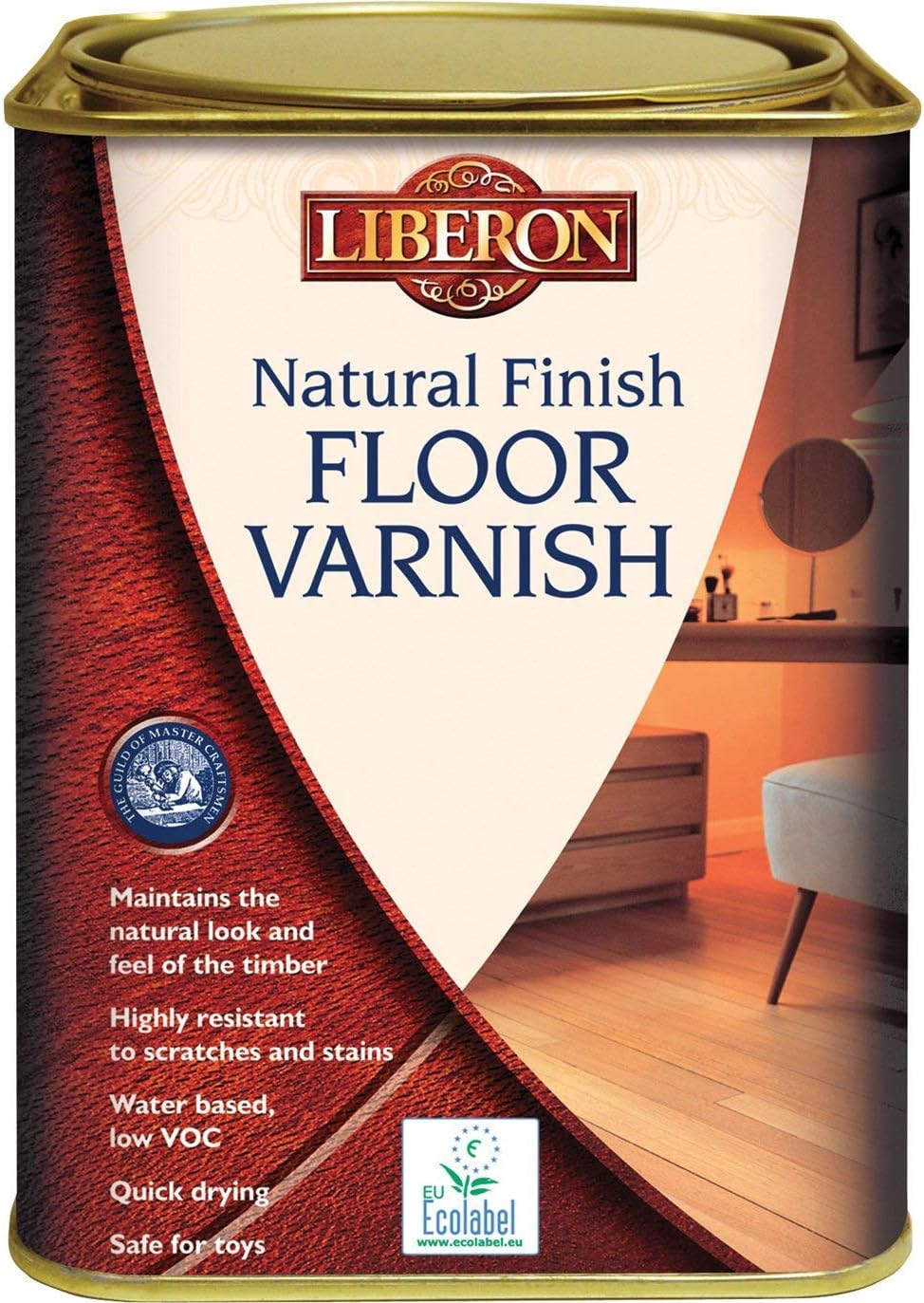
3. Liberon Natural Finish
- Water-based with low VOCs
- Coverage: 1L = 10–12m²
- Minimum 2 hours of drying time
- 1L or 2.5L tins
- Available in matt or satin
During testing, I found that this Liberon varnish offered superb protection on my wood floor, and due to its non-yellowing and quick-drying formula, it also helped bring out the grain.
Furthermore, this satin sheen is an excellent option for households with kids because it hides minor scuffs and scratches from dropped toys, etc.
However, this varnish requires several coats to perform its best. For this reason, it takes third place.
| Pros | Cons |
|---|---|
| Fantastic protection | Requires several coats |
| Maintains natural colouring of wood | |
| It brings out the grain. |
Best Floor Varnish — 2024 Comparison Table
| Name | Recoat Time | Tin Size | Coverage Per Litre | Price Range | Rating |
|---|---|---|---|---|---|
| Ronseal Diamond Hard Floor | 2 Hours | 2.5 Litres | 18m2 | £££ | 9/10 |
| Rustins Quick Dry | 2 Hours | 2.5 Litres | 10–12m2 | £ | 7/10 |
| Liberon Natural Finish | 2 Hours | 1 Litre | 10–12m2 | ££ | 8/10 |
Floor Varnish Buying Guide
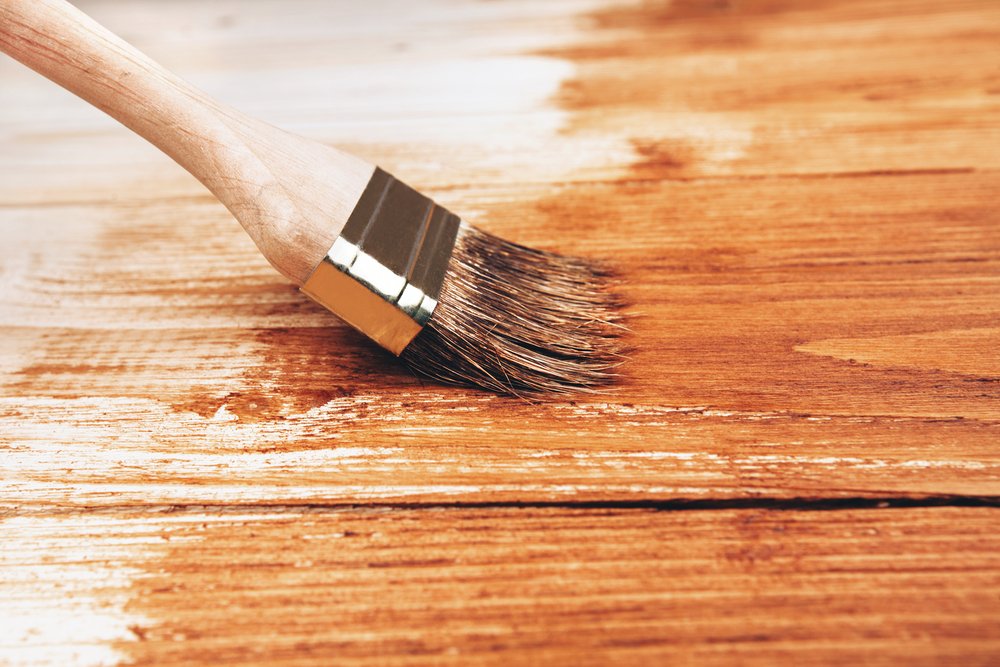
When choosing the best varnish for your wooden floors, consider the following key points:
Finish
When shopping for the best floor varnish, first decide what finish you want. Below are the most common options:
- Satin (most popular) — A mid-sheen finish, meaning a slightly polished surface that reflects some light.
- Natural — Highlights the wood’s grain, texture and personality.
- Matte — Similar to natural. Low-sheen and hides imperfections.
- High Gloss — Shiny finish that reflects lots of light.
Traffic
Consider the volume of traffic the floor must handle — Will the whole family regularly use the floor, or will it be used sparingly?
These questions will determine how hard-wearing your varnish must be.
Waterproofing/Water Resistance
Whether or not you need a waterproof or water-resistant varnish depends on the floor’s location. If it’s in a room with more exposure to moisture, such as a kitchen or bathroom, then opt for a waterproof varnish.
Conversely, dry rooms such as bedrooms or living rooms don’t need this extra protection. In this case, opt for a water-resistant varnish to protect floors from spills and regular cleaning.
Cost
Prices depend on the varnish’s finish, durability and water resistance qualities. Unsurprisingly, highly durable and waterproof products cost more.
Pro Tip: A seemingly more expensive varnish often works out cheaper if it has greater longevity and doesn’t require regular reapplication.
Final Thoughts
After many hours of testing and careful consideration, I firmly believe that Ronseal’s Diamond Hard Floor is the best floor varnish on the UK market.
I love how this product made my floor harder-wearing while leaving a beautiful finish. This varnish also benefits from having wide coverage and being effortless to apply.
Pro Tip: It’s always best to sand your floors before varnishing. To learn more, check out our floor sanding cost guide.
FAQ
Below are answers to frequently asked questions about floor varnish.
What is the hardest-wearing floor varnish?
While all three products reviewed in this buying guide are hard-wearing, Ronseal’s varnish was the most hard-wearing during testing.
Furthermore, we didn’t need to apply several coats to achieve this level of durability.
What is the most popular finish for hardwood floors?
A satin finish is the most popular finish for hardwood floors in the UK. This finish benefits from being easy to clean, and it doesn’t show scuffs, spills or imperfections.
Is it better to oil or varnish wood?
Varnishing wood is better than using oil because varnish requires less maintenance. The lifespan of varnish is around 5–10 years, while an oil stain may only last 1–2 years before it requires reapplication.
How many coats of varnish do I need for hardwood floors?
It takes 2–3 coats to varnish a hardwood floor when using a brush, cloth or pad. Always check the manufacturer’s recommendations before deciding how many coats to apply.

